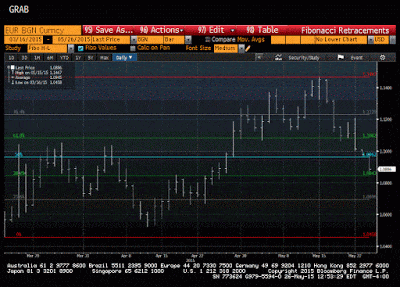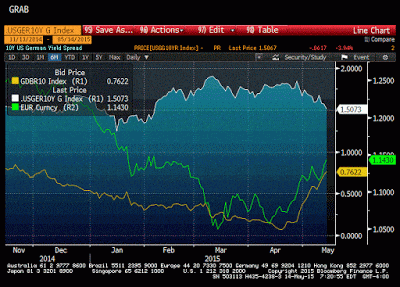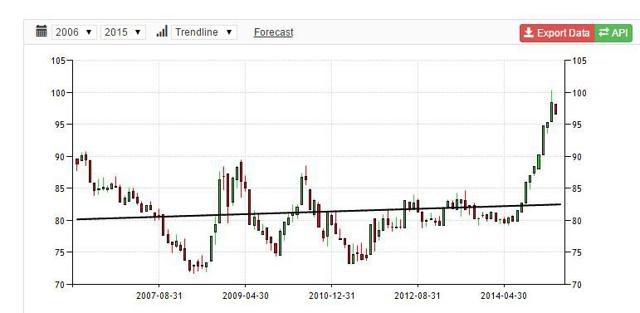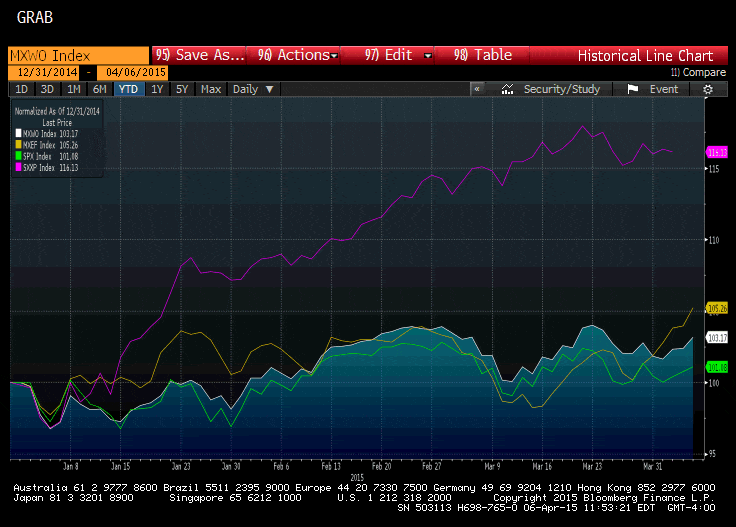Euro Machinations
The euro has shed six cents over the past seven sessions. There are two main forces. The primary one arguably is within Europe itself. After an extended flash crash that saw German 10-year yields jump (from 5 bp on April 17 to almost 80 bp in the first half of May), they have come back (to 53 bp today). The ECB confirmed what many had suspected. Namely, that the ECB will expedite its bond purchases ahead of the thinner summer markets.







